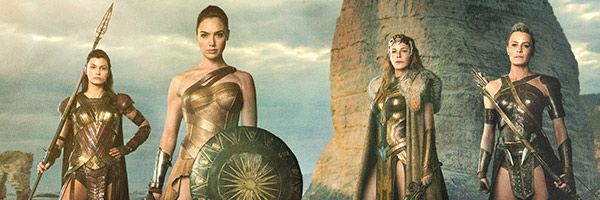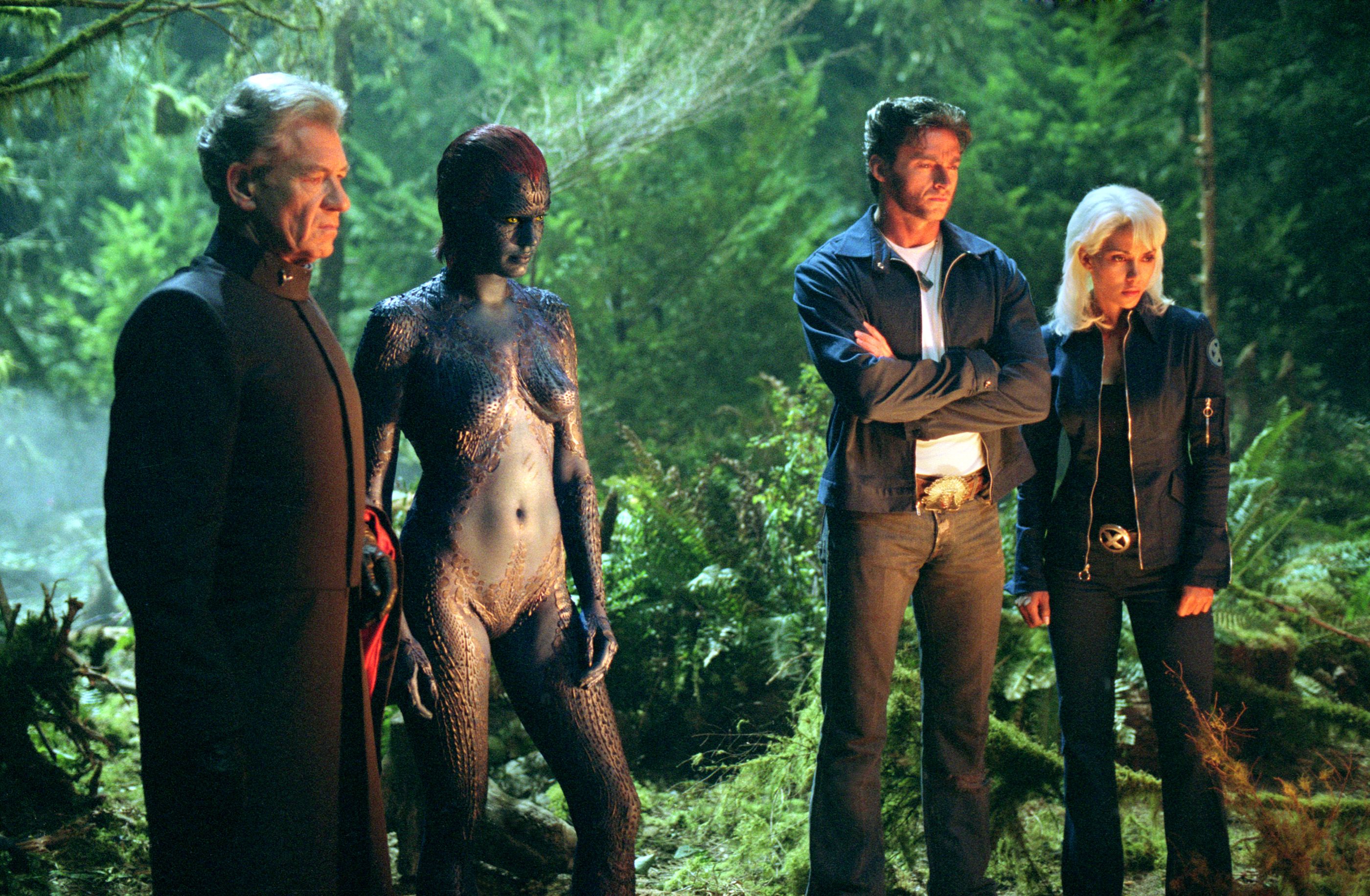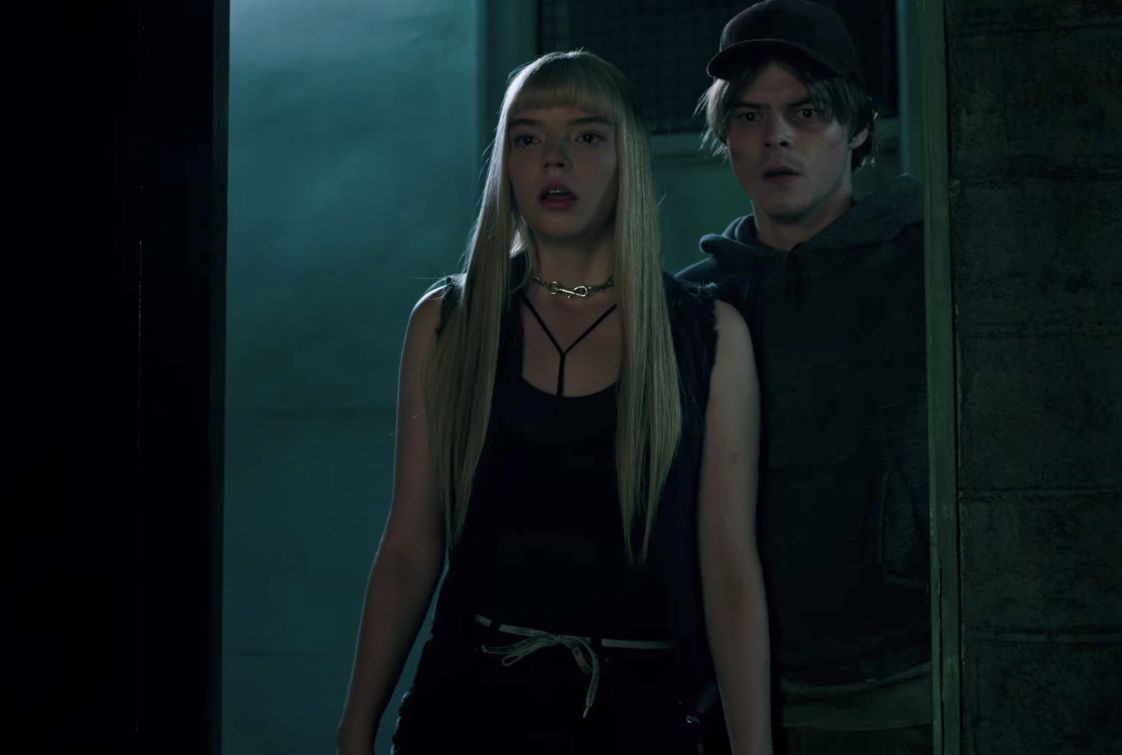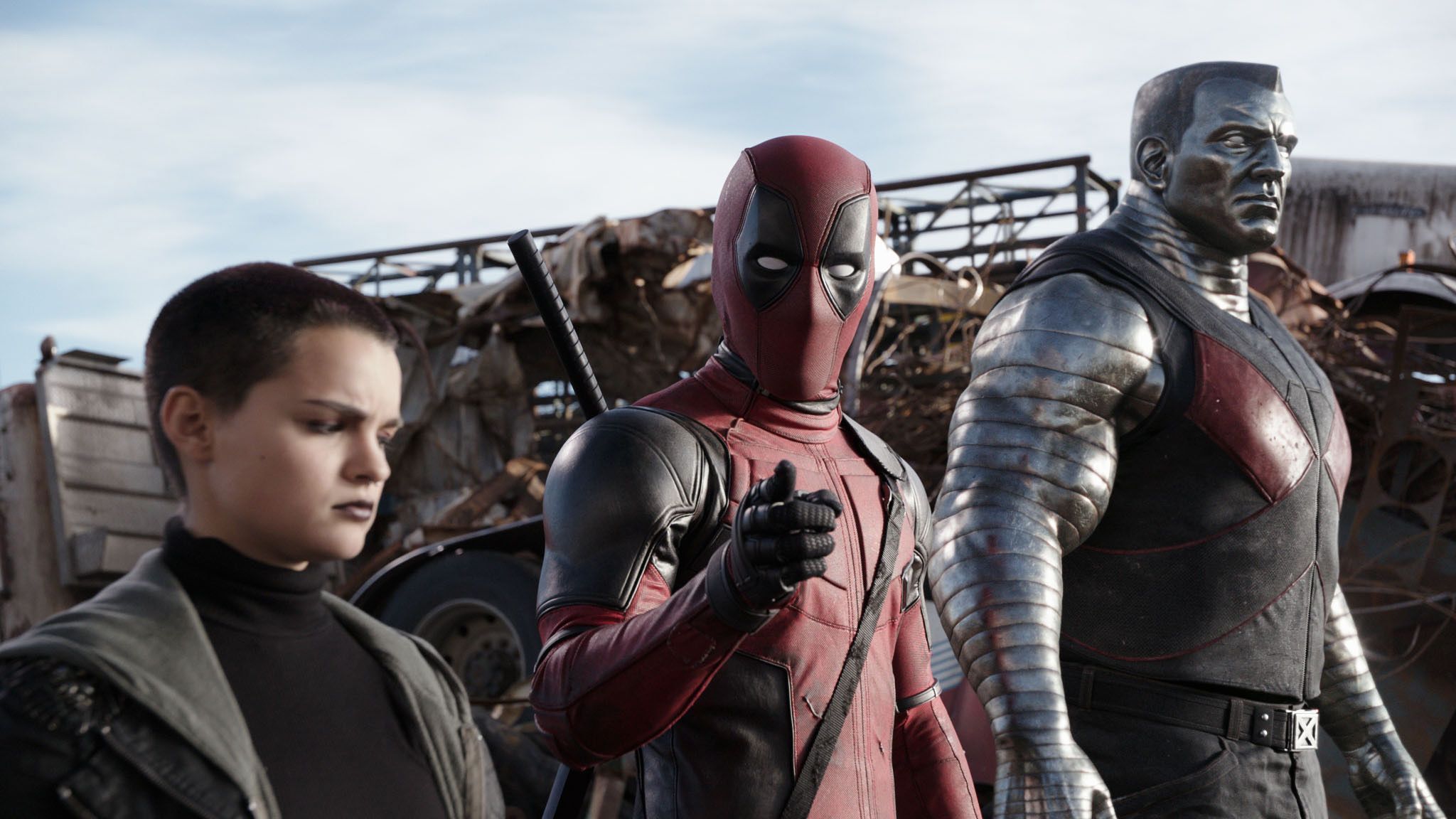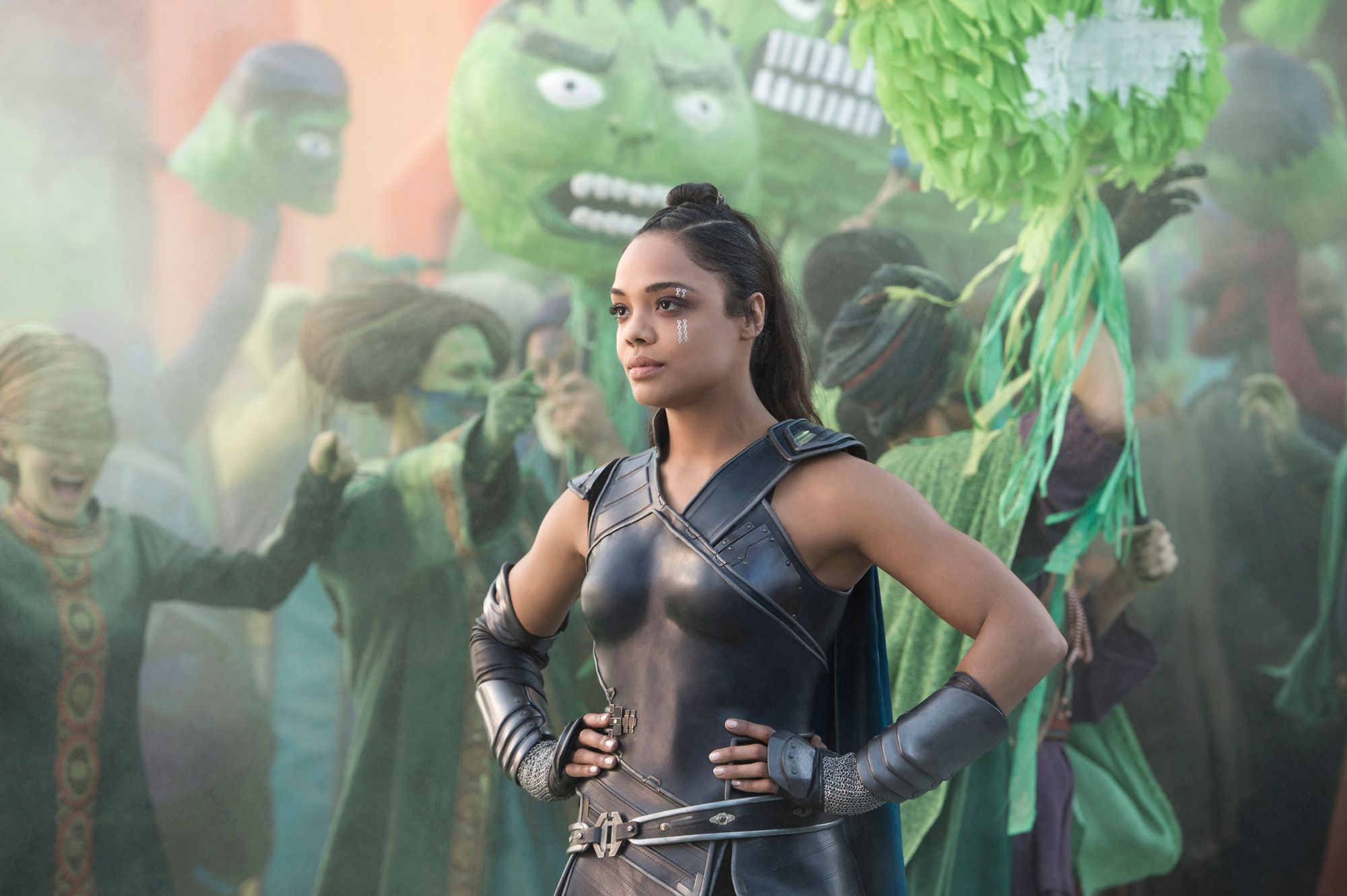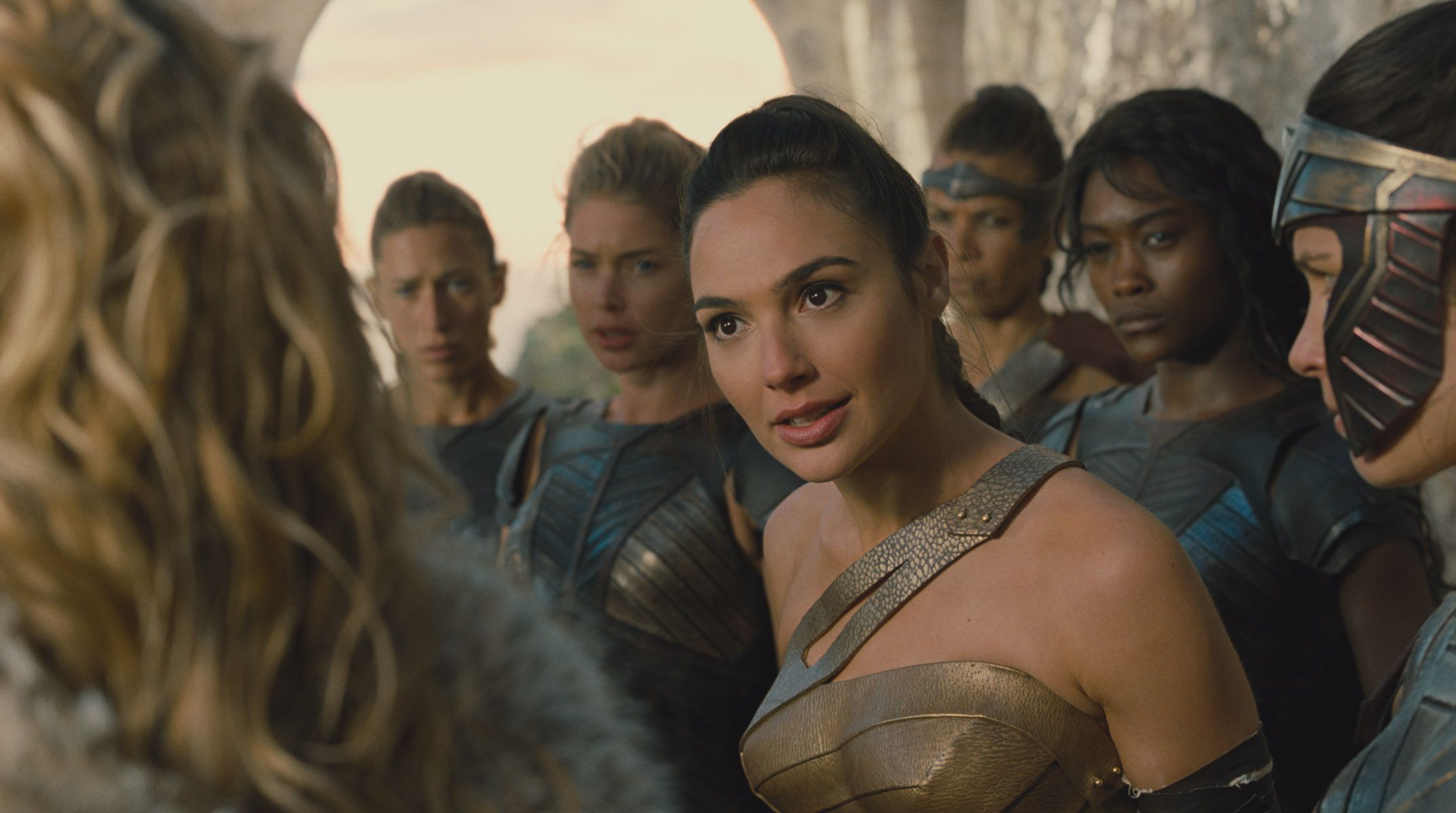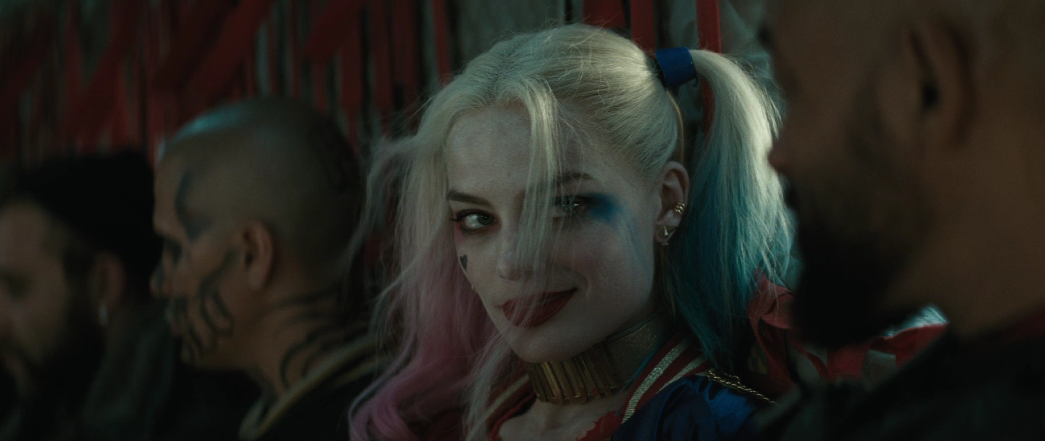Superhero movies have an unspoken “don’t ask, don’t tell” policy. Studios seem more than happy to recruit characters and narratives with queer subtext — or straight up queer text — but authentic, clear representation is practically nonexistent in the genre. Wonder Woman, a character with a history tied to queer culture, “can be bisexual,” Gal Gadot had said, but it’s nothing addressed in the film. Ryan Reynolds mentioned it “would be great” for Deadpool, a pansexual character in the comics, to have a boyfriend. But for 20th Century Fox’s most lucrative superhero property to date, we’re not holding out breath.
For better or worse, these comic book-based blockbusters have broken from their niche to become fuel for Hollywood. As such, directors and producers have felt the pressure to feature more inclusive characters from their diverse audiences. Fans cried out for more female superheroes and they finally got a Wonder Woman movie, soon to be followed by Captain Marvel. They cried out for a black superhero and are getting Black Panther as a result. On a similar note, Doctor Strange felt the burn after whitewashing a prominent Asian character, but the jury’s still out as to whether they will rectify this problem in the future.
But queer superheroes? That’s a different story. Every excuse for this abysmal lack of representation has been used — not just with superhero movies, but Hollywood releases in general. It’s a numbers game: queer characters are still seen as a liability when it comes to international ticket sales. Russia is a perfect example of a country that harshly discriminates against — and, in many cases, physically harms — LGBTQ citizens, but it makes up a significant portion of box office sales. So these characters remain largely invisible to appeal to moviegoers around the world, even if those moviegoers aren’t homophobic.
It’s becoming more and more frustrating, however, because now LGBTQ stories from the comics are the source material for these films and yet there’s no attribution beyond a wink to their roots. It’s especially true of some of these six films, which could’ve so easily fixed this longstanding injustice. In actuality, it wouldn’t be difficult at all to feature these characters in any superhero movie, but these choice titles have little excuse.
1) Literally ANY 'X-Men' Film
I’m harsher with the X-Men franchise than any other superheroes because their story in the comics has long been seen as an allegory for queer oppression. Comic creator Chris Claremont said he never explicitly intended for these mutants to be seen that way, but as the years have gone on he embraced this interpretation.
New Mutants #45, for instance, tells of Larry, a mutant who commits suicide after suffering torment from the anti-mutant climate at his new school. Kitty Pryde, who befriended Larry, says in a moving speech, “He thought if people knew the truth, they’d stop seeing him and see only the label, the brand, his personal ‘Scarlet Letter.’ So he hid the truth and lived in terror of being discovered.” Claremont has since said that "gay people could look at it and find resonance in terms of who they were and what they were standing for.”
The Comics Code, a systematic censoring of comic book material, prevented creators from addressing certain social issues on the page. Now, LGBTQ characters are far more prevalent in comics, and yet not on the screen. We’ve seen anti-mutant discrimination across the board with the X-Men films, the consequences of hiding who you are out of fear of retaliation, and the story of the mutant “cure,” which draws parallels to gay conversation therapy and a “pray the gay away” mentality. The subtext of Ice Man’s “coming out” to his parents in X2 couldn’t have been more clearly spelled out, but not even the character’s sexual coming out in the comics has led to any authentic LGBTQ representation from the film franchise.
2) 'New Mutants'
Next year’s New Mutants, specifically, doesn’t have much of an excuse for breaking ground in this department because a prominent, founding member of the New Mutants team is a lesbian.
The comics introduce these teen mutants as too young to fight beside the X-Men but old enough to start learning how to control their abilities. The film, directed by Josh Boone, is taking the horror movie approach and adapting the saga of the Demon Bear, which focuses on the bear-like entity that killed the parents of New Mutant member Danielle Moonstar.
Admittedly, Karma, one of the first mutants recruited for this team in the comics and is later revealed to be a lesbian, does not play a part in this arc. But the character of Magma does and she’s not included in the film, either — it’s Moonstar, Magik, Wolfsbane, Sunspot, and Cannonball. So, there’s some leeway with character selection. Boone has already said he’d like to include Karma in the future sequels, assuming the first one does well and more are green lit, but it’s that same old “Maybe next time, kid” excuse.
3) 'Deadpool'
A pansexual superhero on the big screen? Someone call One Million Moms! But, yes, that is what Deadpool is and his sexuality is something Reynolds says he would love to see more of in future films. “We knew that was part of the comics,” Rhett Reese, one of the film’s screenwriters, told Variety. “We wanted to honor that in the movie. But we did it in subtle ways.” Producer Simon Kinberg added, “There’s veiled references to it in this film. It’s in the DNA of the character.” And in the end, isn’t it always “veiled references” to queer characters and nothing too explicit? Deadpool has the chance to be much more than the moneymaker it’s proving to be for Fox. So, why wouldn’t the powers that be make a change? It likely comes down to something director Taika Waititi said about his own superhero movie, Thor: Ragnarok: these films need to appeal to everyone.
4) Thor: Ragnarok
Tessa Thompson confirmed over social media that her character, Valkyrie, is the first LGBTQ superhero in a Marvel movie. So why isn’t this more groundbreaking than it would seem? Because it’s never addressed. As Waititi told The Playlist:
We had talked about it. There was one moment that didn’t make it into the film where she was hanging out with a girl. If you were to read into that you can see that in her flashback. There is a girl there and maybe perhaps there’s something there that was her girlfriend. Who knows. We tried to make sure it wasn’t super specific or that we were trying to say ‘She’s a lesbian! She’s bi! We really gotta get everyone on board with this!’ It’s more like, ‘Look if you want to read anything into that you can make sense of it in parts of the film.’ I know that she had that and she was using that in her process and stuff. And I’m totally supportive of that. Why not?
On one hand, we must commend Waititi and Thompson. The actress revealed in a recent Rolling Stone profile that she pitched the director on Valkyrie being bisexual and clarified that the cut scene was a shot of a woman leaving the warrior’s bedroom. It apparently distracted from the scene’s exposition, so Waititi went for something more subtle: a flashback scene where Valkyrie agonizes over the death of a fellow warrior, one Thompson always saw to be her lover. The problem with that is the same problem that always arises with these “veiled” attempts. Sexuality isn’t like race. You can’t just have an actor appear on screen and call it inclusive casting. You have to make it clear, you have to say the words out loud. Otherwise, it’s just don’t ask, don’t tell.
5) Wonder Woman
More so than the X-Men, Wonder Woman has a very queer creation story — as is apparent to anyone who saw the very queer Professor Marston and the Wonder Women. Even Saturday Night Live had some fun with this piece of the character’s history in a sketch with Kate McKinnon (herself openly lesbian) and Aidy Bryant. Here’s Gadot’s response to the topic when asked about comic book writer Greg Rucka and his stance that Diana is bisexual. You may notice some consistent themes throughout all these excuse:
It’s not something we’ve explored. It never came to the table, but when you talk theoretically about all the women on Themyscira and how many years she was there, then what he said makes sense. In this movie she does not experience any bisexual relationships. But it’s not about that. She’s a woman who loves people for who they are. She can be bisexual. She loves people for their hearts.
You don’t want to address Wonder Woman’s bisexuality? It sucks because, again, the LGBTQ representation in mainstream Hollywood movies is abysmal, but whatever. You’re telling me, however, that there are no same-sex relationships on Themyscira, an island where the Amazons have lived for centuries that’s completely void of men? To quote McKinnon, “Again, just ‘cause the whole thing seems super gay.”
6) Batman
Queerness runs rampant through Gotham City from Batwoman to Harley Quinn. Kate Kane prominently featured as lesbian in the Detective Comics arc from writer Greg Rucka and artist J.H. Williams III, while the clown princess, Catwoman, and Poison Ivy have been bisexual on the page. What’d you know? Joss Whedon is working on a Batgirl movie for DC (though it’s said to be based on the New 52 version of Barbara Gordon) and David Ayer is working on his take on Gotham City Sirens after helming Suicide Squad.
Not every superhero movie needs LGBTQ representation. Each director approaches the genre differently, tapping into their own personal interests and experiences with these characters. The larger problem is that the same people are always the one in the director’s seat. Patty Jenkins (Wonder Woman), Waititi, Anna Boden (directing Captain Marvel with Ryan Fleck), and Ryan Coogler (Black Panther) are a rare breed. If we keep getting the same people to direct the same kinds of movies, we’re going to get the same kinds of stories.

